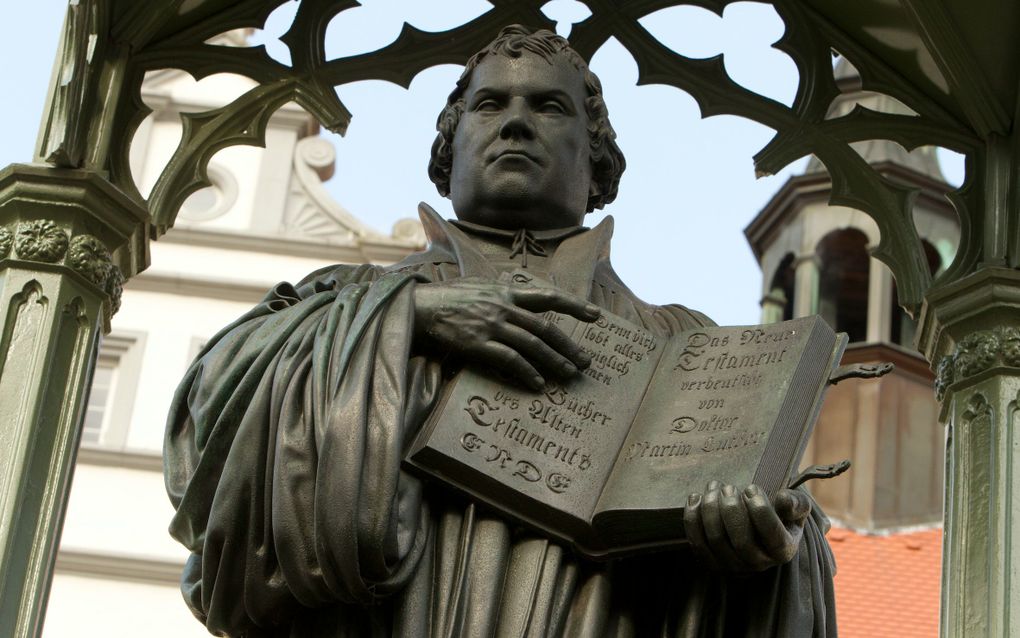Protest against gender-neutral language in German church

Gender-neutral language is quite common in the Lutheran church in Germany. Some theologians protest against that. Photo RD, Henk Visscher
Central Europe
Two conservative groups within the Evangelical Church in Germany (EKD) published a brochure in which they oppose gender-neutral language in the Church. They even speak about the "genderisation" of the church.
The German Protestant news service Idea reports this.
The brochure's title refers to the first chapter of the Bible: "...and created them as man and woman! What Argues Against the Genderisation of the Church". The booklet is presented as a helping guide for congregations. The organisations behind it are the Württemberg working group of the Network Bible and Confession (Netzwerk Bibel und Bekenntniss) and the Württemberg pastor's working group Confessio.
Women are (not) included
Gender-neutral language is becoming quite mainstream in Germany. The goal is to avoid the assumption that women are included in masculine words. One particular problem is that German grammar knows three genders for every noun: feminine, masculine or neuter. The solution is to bypass this by mentioning both the feminine and the male forms (with the feminine first). For that reason, the German minister of Defence will speak about "Soldatinnen und Soldaten" (soldiers).
A new form to include both sexes is to work with stars. To avoid the assumption that females are part of the word "colleagues", you speak about "Kolleg*innen" instead of "Kollegen" since that is the plural of masculine "Kollege" and not the feminine "Kollegin".

Gender-neutral language is not yet part of the official German rules. However, the official dictionary Duden gives advice on how to use gender stars. In the public space, like media and politics, gender-neutral language is widespread.
"I see stars"
In Germany, the people's church EKD is a natural part of the national culture. For that reason, it's not strange that gender-neutral language is used in the church as well. Therefore, Church ministers are referred to as "Pfarrer*innen" to include both the female and the male pastors.
All this is difficult to accept for the more traditional part of the church, at least since the Bible includes the "sisters" into the "brothers".
"I see stars," writes Dr Tobias Eissler in a preface in the brochure. "An awful lot of stars in church texts." The chairman of the Württemberg working group of "Bible and Confession" refers here to the marks in church documents to express a "multiplicity of genders".
Eissler doesn't think this is without problems. "We believe that this is about more than spelling," the booklet says. "Anyone who reads the Bible will not find any asterisks in it," writes Dr Eissler. "It is simply, quite clearly, about men and women."

The Bible teaches us to be sceptical about any artificial intervention in writing and language, continues the Ostfildern-Ruit minister. According to him, behind the changes, there is an ideology that places itself "above the truth and wisdom of God". "We know this from the time of the two dictatorships in twentieth-century Germany." A church that adapts itself to the spirit of the times is going "terribly astray", he says.
Several authors, including Stuttgart professor Rainer Mayer and Roman Catholic publicist Gabriele Kuby, worked on the 68-page brochure. Kuby is known for her criticism of "The Global Sexual Revolution", as her book is called. She doesn't think that the current gender thinking is just a fashion that will blow over soon. "No, this tide goes through the whole of society, from the government and the media to the kindergarten", she said in an interview with Reformatorisch Dagblad in 2018. "The young generation offers little defence against this indoctrination because they are no longer familiar with Christianity."
Majority rejects
Although gender stars are quite common in present-day German, most of the population rejects the new guidelines. That is what Idea reports about a study contributed by the Augsburg Institute for Generational Research. According to that study, 73 per cent of men and 57 per cent of women are against official gender rules. An earlier study in May ended in the same conclusion.
The survey also revealed that 46 per cent of German citizens consider the debate on gender-equal language important. Remarkable is that twice as many people found this important in the West of Germany as in the East. There are no vast differences between age groups. It seems that especially highly educated people find this important.
Related Articles





